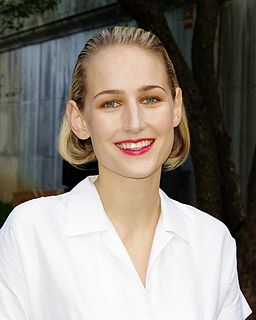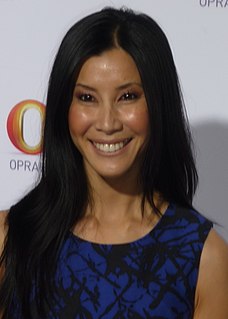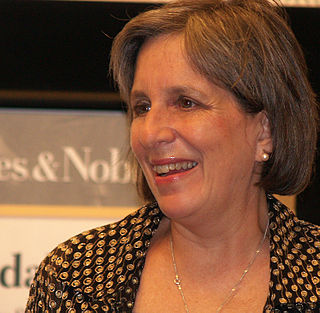A Quote by Marge Piercy
I was a working class Jewish girl. In my girlhood, anti-Semitism was a daily fact of life in Detroit. I did not come from people who had many options in their lives or many choices open to them. I was a girl in a family in which women were, as in society at large, very much second-class citizens. I did not see why I should accept these forced limitations without a fight. Being free to make my own choices thus became very important to me at an early age.
Quote Topics
Accept
Age
Anti
Anti-Semitism
Became
Being
Being Free
Choices
Citizens
Class
Come
Daily
Detroit
Did
Early
Early Age
Fact
Family
Fight
Forced
Free
Girl
Girlhood
Had
Important
Jewish
Large
Life
Limitations
Lives
Make
Many
Me
Much
My Girl
My Own
Open
Options
Own
People
Second
Second-Class
See
Should
Society
Them
Thus
Very
Were
Which
Why
Without
Women
Working
Working Class
Related Quotes
In this life we have to make many choices. Some are very important choices. Some are not. Many of our choices are between good and evil. The choices we make, however, determine to a large extent our happiness or our unhappiness, because we have to live with the consequences of our choices. Making perfect choices all of the time is not possible. It just doesn't happen. But it is possible to make good choices we can live with and grow from.
Once you accept the fact that people have 'individual choices' and they're 'free' to make those choices. Free to make choices means without being influenced and I can't understand that at all. All of us are influenced in all our choices by the culture we live in, by our parents, and by the values that dominate. So, we're influenced. So there can't be free choices.
My life story is something obviously that belongs to me very personally. And the fact of the matter is that I had choices and chances and opportunities that were provided to me, based on the way I was able to direct my own decision-making. And what I'm working to fight for is to make sure that all women have the ability to do that.
We have consistently supported a legalization program which is both generous to the alien and fair to the countless thousands of people throughout the world who seek legally to come to America. The legalization provisions in this act will go far to improve the lives of a class of individuals who now must hide in the shadows, without access to many of the benefits of a free and open society. Very soon many of these men and women will be able to step into the sunlight and, ultimately, if they choose, they may become Americans.
One thing that was very important to me was that I felt comfortable in the lab from being very, very small. I knew that that's where I belonged, and I could fix things and move things. And no matter how many classrooms I went into where I was the only girl in the physics class or whatever, I never questioned the fact that I didn't belong there.
Human beings are hardwired by however many millions or billions of years to orient toward their own survival. That's why we're tribal people. That's why we're prejudiced people.
That's why we treat women as second-class citizens, that's why we are homophobic, and that's why we make religion a weapon to prove we're superior to other people.
Men ruled the roost and women played a subservient role [in the 1960s]. Working wives were a rarity, because their place was in the home, bringing up the kids. The women who did work were treated as second-class citizens because it was a male-dominated society. That was a fact of life then. But it wouldn't be tolerated today, and that's quite right in my book... people look back on those days through a thick veil of nostalgia, but life was hard if you were anything other than a rich, powerful, white male.
The Girl Scouts is where I became acquainted with the idea that a woman can do anything. Learning that early on has a tremendous impact on the development of a young girl's personality. It had a huge impact on me. Girl Scouts is where I first learned about philanthropy and fell in love with the concept of helping others-in my troop this was very important. We did a lot of community service like picking up trash and feeding the homeless. Loving humankind was something that echoed throughout my time at Girl Scouts.
The years between leaving school and actually becoming an adult are very important years. You make a lot of choices as to the type of life you want to lead and what type of person you want to be. There were so many people who had opinions of me, a lot of them very unflattering, that it was hard to make up my mind about who I was supposed to be.
But, finally, I had to open my eyes. I had to stop keeping secrets. The truth, thankfully, is insistent. What I saw then made action necessary. I had to see people for who they were. I had to understand why I made the choices I did. Why I had given them my loyalty. I had to make changed. I had to stop allowing love to be dangerous. I had to learn how to protect myself. But first… I had to look





































